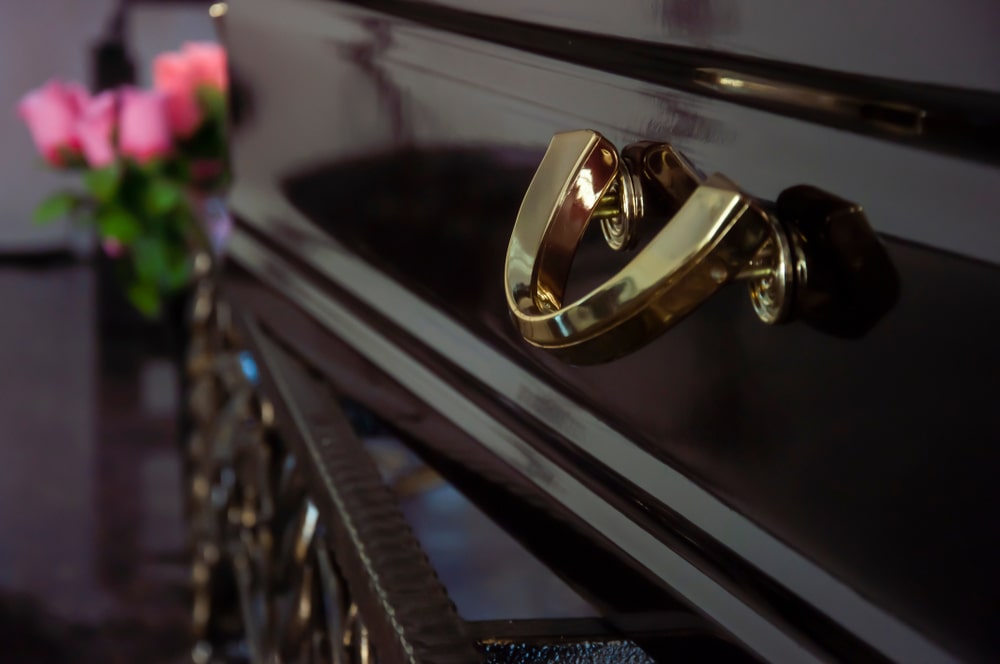When planning a funeral, it’s easy to feel a little overwhelmed by all the new terms and definitions. If you are interested in burial as your method of final disposition, one term you may come across is sealer and non-sealer caskets. But what are they? How are they different? Today, let’s discuss each type of casket as well as 5 major differences between them.
What is a Sealer Casket?
With a sealer casket, there is a rubber gasket (or some other sealing material) along the top edge of the casket, creating a seal when the lid (or “couch”) is closed. This mechanism creates an air-tight seal that traps air pressure and gases within the casket, which speeds up the decomposition process. This seal also prevents outside materials – like dirt, moisture, bugs – from getting inside the casket. However, please note, it’s not 100% guaranteed to keep everything out, especially if the casket is subject to flooding or some other natural disaster.
“Sealer” caskets go by several names, including “gasketed” caskets and “protective” caskets. Additionally, they are not recommended for use at a crypt or mausoleum because the casket may swell or expand when gases are unable to escape. There’s limited space in a mausoleum niche, so any expansion is a concern.

Important Notes for Sealer Caskets:
- If the person died of an infectious disease that poses a risk to the public, a sealer casket can reduce the risk of contagion.
- In cases where the body is embalmed, a sealer casket can decrease the likelihood that chemicals will seep into the ground.
- While a sealer casket doesn’t prevent decomposition, it does a better job at protecting the body from outside elements, like moisture, bacteria, and dirt.
What is a Non-Sealer Casket?
On the flip side, a non-sealer casket does not include a sealing system, but it still closes firmly and won’t break open. Decomposition is slower with non-sealer caskets because any air pressure and moisture can be released from the casket’s interior. Additionally, because they lack a seal, non-sealer caskets come in a wider range of materials, including some eco-friendly options.
5 Major Differences Between Sealer and Non-sealer Caskets
Now that you know some basic facts about each type of casket, let’s take a deeper dive into 5 major differences between the two types of caskets, so you can choose the one that makes the most sense for your needs.
1. Cost
Because of the sealing mechanism and the fact that they are made of metal, a sealer casket is generally going to cost more than a non-sealer casket. However, you should consider your plans for the casket. If you are placing the casket at a mausoleum, a non-sealer casket may be best. On the other hand, if you are transporting the body by air, a sealer casket will likely be required by the airline.
2. Decomposition Rates
Decomposition rates differ between the two types. With sealer caskets, decomposition occurs more quickly due to the air pressure and moisture inside the casket. A non-sealer casket allows air pressure, moisture, and gases to escape, so the decomposition process slows down. If the decomposition rate matters to you or your chosen cemetery, choose the casket that best meets those needs.
3. Environmental Factors
If you are interested in natural burial, then a non-sealer casket is the better option. Without the sealing mechanism, you can choose a casket made of wood, bamboo, or even wicker. Sealer caskets, on the other hand, generally come in sturdier materials, like bronze, copper, or steel. Additionally, metal caskets don’t break down naturally, which makes them less environmentally friendly.
4. Transportation Needs
In cases where the body needs to travel long distances – especially by air – a sealer casket is best. Because it is considered leak-proof and air-tight, a sealer casket is preferred by airlines. After all, they don’t want a biohazard situation on their hands. Speak with your funeral director to determine if your funeral plans require a sealer or non-sealer casket.
5. Above-ground Burial Considerations
If your funeral plans include above-ground burial – such as in a mausoleum – then a non-sealer casket may be the better choice. With above-ground burial, cemetery operators often prefer a slower rate of decomposition. Because of this, if you purchase a sealer casket, they may break the seal after the casket is placed in the mausoleum or crypt.
With a better understanding of sealer and non-sealer caskets, you can now make funeral decisions with more confidence. But remember – as with everything relating to a funeral, there’s no right or wrong choice. There’s only what makes the most sense for your family and your situation. Talk things over with a trusted funeral director. They will use their years of knowledge to help you understand what options are available based on your personal preferences.








